When Poland was a totalitarian state, the role of the Church was very specific. The Church was a defender of not only freedom of religion but also freedom of conscience and freedom of speech. We had several Roman Catholic newspapers which tried as far as possible to broaden the areas of freedom of expression. In spite of persecution, the Church and many people never gave up. In addition, non-Roman Catholic dissidents could always count on the protection of the Church. In this situation, democracy was the dream and value of most of us. Now I can say that probably we idealised society and life in the democratic countries. This doesn’t mean I want to undervalue democracy. Democracy is not perfect but any attempt to dismantle it would have a terrible effect on society.
So we need to question how to deepen democracy. After 1989, we quickly realised that democracy is not only the vote but the appropriate social framework in a free society.
We discovered that it is much easier to transform the economy than to transform political systems, not only because of bad old habits and lack of knowledge but also because of the difficulty in finding good examples to follow. Instead of ready-made examples, we faced a range of individualistic attitudes in very self-confident and fragmented societies.
Education is a primary concern of those with young children while care of the elderly is the concern of those who are approaching retirement. Democracy as such is not in a position to accommodate all these needs, especially when everybody wants to pay less tax. The conflicts of interest of different groups and the necessity of prioritisation lead to disaffection in the electorate. Those who crave such power therefore become populist and this in turn leads to a deterioration of the quality of democracy. But in fact, it is not a fault of democracy but a fault in human beings. The electorate wants to get everything possible and doesn’t see the needs of others. Politicians want to be liked and popular, and are reluctant to tell the truth. This situation creates a vicious circle. Different social groups think about fulfilling their own needs and don’t accept the holistic approach, while the concern of politicians to keep power results in more and more promises many of which will not be kept. This is a significant cause of democracy’s erosion...









